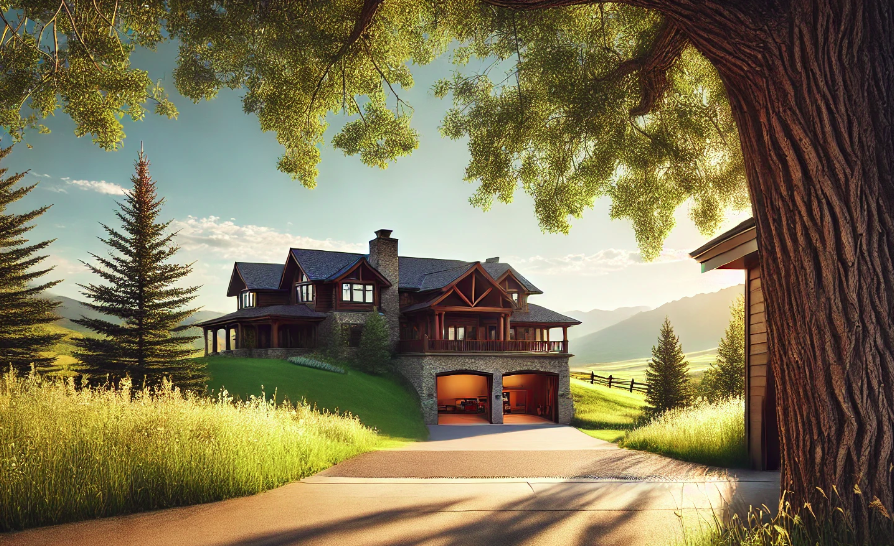Introduction to Probate in Montana
Probate in Montana is the legal process of validating a deceased person’s will, settling their debts, and distributing their assets according to state laws. Legal responsibilities and timelines are the last thing someone wants to worry about after a loss.
If you want to make the probate process much easier for your family, consider hiring a Montana Probate attorney to oversee it and ensure everything is carried out according to the deceased’s wishes.
At Montana Elder Law, we specialize in guiding families through probate with professional and compassionate support. Keep reading to gain insights into probate in Montana.
Probate in Montana
| Definition | Probate is the court-supervised process of validating a will, settling debts, and distributing assets. |
| When Required | Needed if the decedent owned property solely or there is no will. |
| Types of Probate | Informal, formal, supervised administration, and simplified procedures for small estates. |
| Informal Probate | Used when there’s a valid will, no disputes, quicker and less court supervision. |
| Formal Probate | Required for disputes, questionable will validity, or no will, involves more court supervision. |
| Supervised Administration | Ongoing court oversight until the estate is fully settled, used for complex estates. |
| Collection by Affidavit | For estates under $50,000, heirs can use an affidavit to collect personal property without formal probate. |
| Small Estate Summary Administration | Simplified process for qualifying small estates, no formal hearings. |
| Initiating Probate | File a petition with the district court in the county where the deceased lived. |
| Personal Representative | Appointed by the court to manage the estate, pay debts, and distribute assets. |
| Costs | Court filing fees, attorney fees, appraisal fees, personal representative fees, miscellaneous costs. |
| Avoiding Probate | Use revocable living trusts, joint ownership arrangements, and beneficiary designations. |
| Duration | Varies based on estate complexity, can range from a few months to over a year. |
| Common Issues | Disputes among heirs, unclear or contested wills, and creditor claims can complicate and lengthen the process. |
Probate in Montana: What Is It?
Probate is the court-supervised process of authenticating a will, appointing a personal representative, and distributing the decedent’s assets. It is the legal process that ensures that debts and taxes are paid before the remaining assets are transferred to beneficiaries.
Main Points
- Legal Procedure: Probate authenticates the will and appoints a representative.
- Asset Distribution: Ensures debts are paid and assets are properly distributed.
- Court Supervision: Oversees the entire process to maintain fairness.

When is Probate Required in Montana?
Property Ownership Conditions
Probate is typically required when the decedent owned property solely in their name.
This means that there are no co-owners or beneficiaries directly tied to the property. Without joint ownership or designated beneficiaries, the court must step in to legally transfer ownership to the rightful heirs or beneficiaries.
Presence or Absence of a Will
If the decedent left a will, probate is necessary to authenticate the document and carry out its instructions.
If there is no will, probate becomes essential to distribute the estate according to Montana’s intestacy laws.
Both scenarios require court oversight to settle debts and ensure proper asset distribution.
Joint Tenancy and Trusts Exceptions
Assets held in joint tenancy or placed in a trust usually bypass probate.
These forms of ownership include direct transfer provisions to the surviving owners or beneficiaries.
For example, a home owned in joint tenancy with right of survivorship automatically passes to the surviving owner without the need for probate.
Types of Procedures for Probate in Montana
Montana offers several types of probate procedures. These depend on the complexity and size of the estate.
Informal Probate
Informal probate is used when there is a valid will, no disputes among heirs, and a straightforward estate. It is quicker and involves less court supervision.
Formal Probate
Formal probate is necessary when there are disputes over the will, questions about its validity, or no will at all. It requires more court involvement and can be more time-consuming.
Supervised Administration
Supervised Administration involves ongoing court oversight until the estate is fully settled. It’s often used for complex estates or when continuous legal supervision is needed.
Collection of Personal Property by Affidavit
For estates valued at less than $50,000, heirs can use an affidavit to collect the decedent’s personal property without formal probate. This simplifies the process significantly.
Small Estate Summary Administration
This is a streamlined procedure for estates that meet specific criteria. It allows the personal representative to distribute assets without the usual notice and court hearings.
Probate in Montana: Procedures Comparison Table
| Procedure | When to Use | Key Features |
| Informal Probate | Valid will, no disputes | Quicker, less court supervision |
| Formal Probate | Disputes, questionable will validity, no will | More court involvement, time-consuming |
| Supervised Administration | Complex estates, need for ongoing legal supervision | Continuous court oversight |
| Collection by Affidavit | Estates under $50,000 | Simplified process, no formal probate |
| Small Estate Summary | Estates meeting specific criteria | Streamlined, no formal hearings |
Initiating the Probate Process
Starting the probate process involves several key steps.
First, the executor or personal representative must file a petition with the district court in the county where the decedent lived. This petition formally requests the court to open probate and, if there’s a will, to authenticate it.
Once the court accepts the petition, the next step is to appoint a personal representative, also known as an executor. This individual is responsible for managing the estate, which includes identifying and valuing assets, paying debts and taxes, and distributing the remaining assets to the beneficiaries.
The personal representative must follow Montana’s legal procedures closely to complete the process correctly. (1)
Responsibilities of the Personal Representative
The personal representative plays a significant role in the probate process. They must handle various tasks to settle the estate effectively.
Key Responsibilities
- Notify Heirs and Creditors: Inform all heirs and creditors of the decedent’s passing and the initiation of probate.
- Inventory and Appraise Assets: Identify, inventory, and appraise all estate assets, including real estate, bank accounts, and personal property.
- Pay Debts and Taxes: Use estate funds to pay off any outstanding debts and taxes owed by the decedent.
- Distribute Assets: Distribute the remaining assets to the rightful beneficiaries as per the will or Montana intestacy laws.
- Final Accounting: Provide a detailed final accounting to the court, showing all transactions and distributions made from the estate.
Timeline and Duration of Probate in Montana
The length of probate can vary greatly depending on the estate’s complexity and whether there are any disputes.
Typically, simpler cases can be resolved within a few months. More complex estates might take over a year.
Factors like the size of the estate, the presence of a valid will, and the efficiency of the personal representative can all impact the duration.
Comparison Table: Factors Affecting Probate Duration
| Factor | Impact on Duration |
| Size of the Estate | Larger estates generally take longer |
| Presence of a Will | Valid will can streamline the process |
| Disputes Among Heirs | Can significantly delay proceedings |
| Court Scheduling | Court availability may affect timing |
| Personal Representative’s Efficiency | Effective management speeds up the process |
| Creditors’ Claims | Time needed to settle debts and taxes |
Costs Associated with Probate in Montana
Probate costs can add up quickly and are influenced by several factors.
Typical expenses include court fees, attorney fees, and costs related to appraising and managing the estate. Understanding these costs can help you plan better and potentially reduce the financial burden.
Key Costs in Probate in Montana
- Court Filing Fees: Initial fees for filing probate documents.
- Attorney Fees: Legal representation costs, often based on estate size.
- Appraisal Fees: Valuing the estate’s assets.
- Personal Representative Fees: Compensation for managing the estate.
- Miscellaneous Costs: Publication, postage, and other administrative expenses.
How to Avoid Probate in Montana
Avoiding probate can save time, money, and stress for your loved ones.
There are several strategies for transferring assets without going through the probate process.
Using a revocable living trust allows your assets to pass directly to your beneficiaries without probate.
Placing your property in a trust while you’re alive allows you to manage your estate and decide its distribution after your death.
Key Strategies to Avoid Probate
- Revocable Living Trust: Transfers assets directly to beneficiaries.
- Joint Ownership Arrangements: Automatically transfers assets to the surviving owner, including real estate and bank accounts.
- Beneficiary Designations: Ensures assets bypass probate for retirement accounts, life insurance policies, and payable-on-death accounts.
Probate in Montana with Montana Elder Law
Probate in Montana is a major part of effective estate planning and management. Knowing when probate is required, the types of procedures available, and how to initiate the process can save you time and money. A well-researched or professional approach to probate will benefit heirs and beneficiaries.
At Montana Elder Law, we pride ourselves on providing expert guidance and support through the probate process. Our team is dedicated to helping you handle these legal challenges with confidence and ease. Contact us today to learn how we can assist you with your estate planning and probate needs.
Montana Elder Law proudly offers expert Probate Services in Billings, Missoula, Great Falls, Butte, Helena, Kalispell & Bozeman, MT.
For more resources and information, visit us online HERE.
Reference:
(1) MSU, Probate Process and Settling an Estate, https://www.montana.edu/news/19996/msu-extension-discusses-probate-process-and-settling-an-estate




